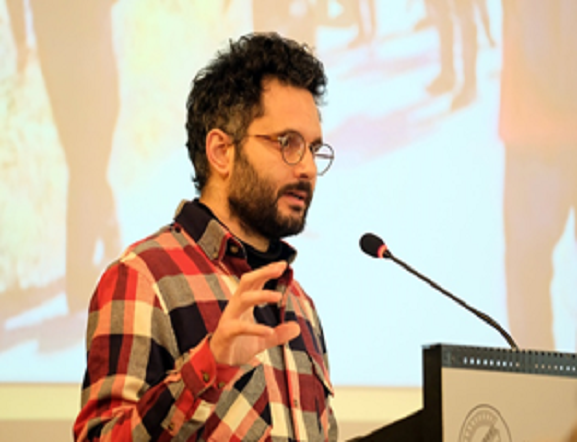2021
Project: Consequences of immobility on the subjectivities of Tunisian youth
Dr. Wael Garnaoui
(Postdoc, Centre d’anthropologie sociale et culturelle de la FLSH-Université de Sousse / Tunisia)
Wael Garnaoui is a doctor in Psychoanalysis and Psychopathology from the University of Paris, a clinical psychologist, and holds a professional master’s degree in clinical psychology from the University of Tunis, a research master’s degree in psychoanalysis and interdisciplinarity from the University of Paris Diderot-7, and a master’s degree in political science from the University of Paris Dauphine. Since January 2020, he has been a lecturer in sociology at the University of Le Havre Normandy. He conducts research on migration policies, the processes of borderization and their impacts on the political subjectivities of migrants from the global south, particularly in the context of irregular immigration of Tunisians. He founded on November 18, 2021 a network of researchers on “Border Studies” at the Center of Anthropology of the University of Sousse in which he taught anthropology between 2016 and 2017. His thesis defended in February 2021 is entitled: Harga and desire for the West in the time of jihad. Borders and migrant subjectivities of Tunisian youth. Currently he continues his research as part of his post-doc at the IFG “inequalities and mobilities” at MECAM.

Project Inequality & Mobility
My research revolves around the processes of frontierization and their impacts on the political subjectivities of migrants from the global south, particularly in the context of irregular immigration of Tunisians. During my postdoctoral stay at MECAM, I continued my observations on the new generation of devices, tools of repression and borderization of the bodies and desires of the populations in the countries of origin; consequences of the European Union’s policy of externalization of borders.
My research project is politically fundamental: it is that of the right to circulate, and, correlatively, of the absurdity of borders. An inequality of movement that has become commonplace in the era of visas and border deportations, and which in itself is aberrant. This difference in rights, paradoxically, makes subjects illegal: to want to circulate. It sets up a real international apartheid of circulation, and founds a systemic racism proper to the relations between Global North / Global South. Colonization, forced displacement of populations, economic migrations in turn provoked then contained and prohibited by Europe, and the capitalist, then neoliberal system, founded on this disparity in circulation, exposes differently to vulnerability the subjects of the Global North and those of the Global South.
The idea of my stay is to develop a perspective based on knowledge from the Global South through the words of people who have experienced the violence of migration policies, such as deported migrants and families of the disappeared. In particular, I studied the impact of migrants’ “forced/voluntary return” or disappearance on their families and on their economic and social environments in their countries of origin.
During this stay I also developed a theoretical perspective by bringing together a dozen Tunisian and international researchers from different disciplinary fields to found a research group on “Border Studies” at the Center of Anthropology at the Faculty of Letters and Humanities of Sousse. This group aims to develop an alternative approach to border studies based on the production of knowledge of the “Global South”.
